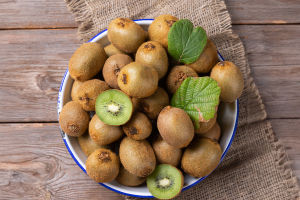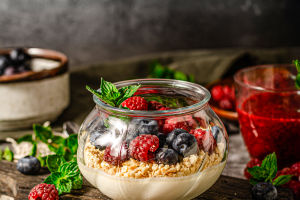Have you ever found yourself standing in your kitchen, wondering whether you should juice that apple or just take a bite?
You're not alone! With juicing gaining popularity for its convenience and trend appeal, many health-conscious individuals are asking: is juicing really better than eating whole fruits? Or are we losing something vital in the process?
Let's explore the science, nutrition, and practical aspects of both methods so you can make the best choice for your lifestyle and health goals.
Nutrition: What's Retained and What's Lost
When you eat a whole fruit, you're getting the full nutritional package—vitamins, minerals, antioxidants, and fiber. Juicing, on the other hand, often removes most or all of the fruit's fiber content, especially if you're using a traditional juicer that separates pulp from liquid.
According to Dr. Nicola, a leading researcher in nutritional biochemistry: "The synergistic action of soluble and insoluble fibers found in whole fruits plays a multifaceted role in metabolic health. These fibers create a gel matrix in the digestive tract that regulates glucose uptake, supports microbial fermentation for digestive wellness, and promotes prolonged satiety through both mechanical effects and hormonal signaling."
Juicing may still provide a high concentration of vitamins and antioxidants—especially vitamin C and plant compounds—but without the buffering effect of fiber, your body absorbs the sugars more rapidly, which could spike blood sugar levels.
Fiber: The Missing Link
One of the main nutritional losses in juicing is fiber. A medium orange contains about 3 grams of fiber, but orange juice has nearly none. This matters more than you might think.
Dietary fiber supports gut health, helps lower cholesterol, and is linked to a lower risk of chronic diseases such as type 2 diabetes and heart disease. Soluble fiber helps control blood glucose and reduces cholesterol, while insoluble fiber aids bowel regularity.
Without this fiber, juice acts more like a sugary drink than a fruit, even if it's freshly squeezed. Registered dietitian Amy Keating notes that fiber slows digestion, which helps you feel full longer and prevents quick sugar crashes.
Sugar Content and Blood Sugar Impact
Here's a comparison: one cup of apple juice contains about 24 grams of sugar—the same as a whole apple. However, that juice lacks the fiber that helps slow sugar absorption.
Juicing compresses multiple fruits into one glass. That 8 oz (237 ml) glass of juice might contain the juice of three apples, meaning you're consuming triple the sugar in a fraction of the time it would take to eat them whole.
This can cause spikes in blood glucose levels, which is especially concerning for people with insulin sensitivity or those managing conditions like diabetes or metabolic syndrome.
Satiety: Feeling Full vs. Getting Hungry Again
Ever noticed that drinking juice doesn't keep you full for long? That's because chewing plays a psychological and physiological role in satisfaction. Eating a whole fruit takes longer, involves digestion starting in the mouth, and sends stronger satiety signals to your brain.
Juice, even if it's nutrient-rich, passes through the system quickly. A study published in Appetite (2013) found that people who consumed whole fruit felt fuller and ate less at the next meal compared to those who drank fruit juice.
If your goal is weight management or curbing cravings, whole fruits are the better option.
Convenience and Consumption Habits
Juicing has its advantages. It's fast, portable, and can pack in a variety of fruits and vegetables at once. For picky eaters or those with limited time, juicing may encourage greater intake of fresh produce.
However, there's a downside. It's easier to overconsume calories and sugars through juice without realizing it. Eating four oranges might be tough—but drinking the juice of four? Done in minutes.
If you're juicing, try blending instead of traditional juicing. Smoothies retain the fiber of the whole fruit and can be enhanced with ingredients like oats, flaxseed, or yogurt for added nutritional value.
Digestive Health: Whole Fruits for the Win
Gut health is a major component of overall wellness. Whole fruits support the gut microbiome by providing prebiotic fibers that feed beneficial bacteria in your digestive tract.
Juices lack this fibrous component, which means they do less to promote healthy digestion. For people dealing with digestive issues, whole fruits can improve bowel regularity and prevent discomfort associated with irregular meals.
Juicing for Detox? Be Skeptical
You might have heard that juicing helps "detox" the body. While juice cleanses are trendy, the science doesn't back the hype. Your liver and kidneys already do the job of detoxifying your system efficiently—no special diet or juice is needed.
According to registered dietitian Keri Gans, restrictive juice cleanses may deprive the body of essential proteins and healthy fats, which are crucial for sustained energy and body function.
Drinking juice occasionally is fine, but relying on it for cleansing or weight loss may do more harm than good.
When Juicing Makes Sense
That said, there are cases where juicing can be a practical health tool. For individuals recovering from illness, with chewing difficulties, or needing high doses of vitamins, fresh juice can provide easily digestible nutrition.
In these instances, pairing juice with a balanced diet and staying mindful of sugar content can make juicing part of a supportive health plan—just not a replacement for whole foods.
The Verdict: Whole Wins (Most of the Time)
Whole fruits come out ahead in nearly every category: fiber, satiety, blood sugar control, and overall nutrition. Juicing can still be enjoyed as an occasional treat or supplement, but it shouldn't replace eating fruits the way nature intended.
Nutritionists generally agree: when in doubt, go for the crunch, not the cup.
How Do You Take Your Fruit?
Are you a smoothie lover, a juice fan, or do you prefer biting into a crisp apple? We'd love to hear what works best for your routine and why! Drop a comment with your thoughts or your favorite fruit snack—you might inspire someone to try something new today!


